Collagen Supplements: 5 Health Benefits For Skin, Joints & More
Get an insight into the timeline of these anti-aging and bone health promoting supplements.
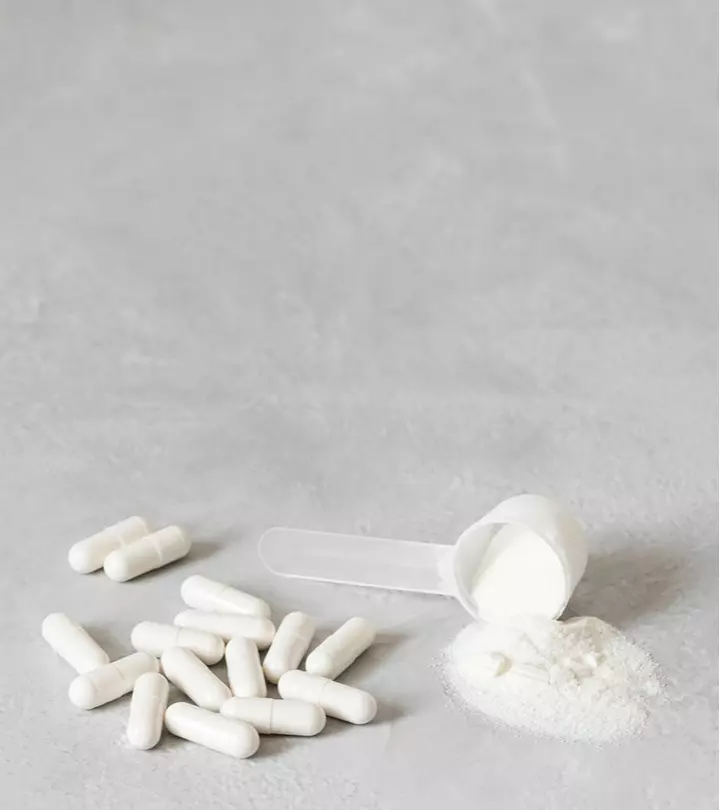
Image: ShutterStock
Collagen is a pivotal component of your body. It is present in your joints, allowing you to bend, stretch, flex, and move. However, with age, the body slows down collagen production, which may affect your mobility and skin. However, you may take supplements as collagen supplements work wonders for your skin, hair, and joints.

They are becoming popular because of the various health benefits. Collagen supplements may reduce the aging signs, improve hair texture, and promote joint and bone health.
But are they really effective? How long do you have to wait to see the results? This article discusses the answers to these queries and explains the benefits and side effects of collagen supplements. Keep reading.
 Did You Know?
Did You Know?In This Article
Why Should You Take Collagen?

Collagen is produced by the fibroblasti Type of cell that forms the connective tissue and is responsible for the production of collagen in the body. cells in the body. However, this production reduces with age, leading to wrinkles, sagging skin, among other issues. This is where collagen supplements are recommended. These supplements help keep your skin young and glowing for a long time. These are broken down into digestible forms of collagen.
Collagen supplements are usually found in a powdered form and are referred to as hydrolyzed collagen, collagen hydrolysate, collagen peptides, or gelatin.
Taking collagen has quite a number of benefits. Let’s discover them in the following section.
Key Takeaways
- Collagen is a protein that promotes skin elasticity. Its production decreases with age, leading to several skin issues.
- Taking collagen supplements may reduce the signs of premature aging and improve skin appearance.
- You can take collagen in powdered, liquid, and capsule form.
- While collagen supplements are considered safe, they may cause some side effects like headache, nausea, bloating, extreme thirst, and skin rashes.
Health Benefits Of Taking Collagen
1. May Reduce Signs Of Premature Aging

Collagen density in the skin reduces with age. This leads to wrinkles, fine lines, sagging skin, and reduced skin elasticity. This is where collagen products may help. Studies show that short-term and long-term use of collagen supplements may help in wound healing, increase skin elasticity and hydration, and boost collagen density in the skin.
2. May Help Maintain Joint Flexibility
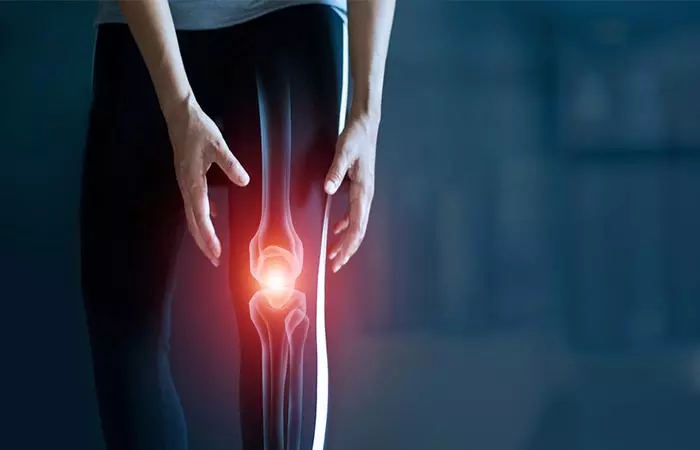
Joints may lose their elasticity with growing age and reducing collagen. This may also lead to a rigid feeling and pain, making one difficult to move and triggering joint inflammation. Taking oral collagen supplements may help alleviate these symptoms and improve mobility and flexibility in all the body’s joints. A study conducted at Penn State University showed that taking collagen hydrolysate supplements may treat joint pain in those with osteoarthritisi A most common type of arthritis where joint cartilage and underlying bone degenerates due to wear and tear. .
A blogger shared their experience of consuming collagen supplements for 30 days in their blog. They said, “My body felt less achy, and I could feel a big improvement in my joints. That alone is the reason why I just may continue to use collagen powder daily. (i)”
3. May Heal A Leaky Gut
Individuals with inflammatory bowel disease were found to have lower levels of type IV collagen. Oral collagen supplements might help treat leaky gut. However, more information is warranted in this regard.
4. May Boost Muscle Strength

Taking collagen supplements daily, along with resistance training, was found to promote muscle strength in the elderly. The supplements may also help repair muscle tissue and aid wound healing.
5. May Strengthen Your Hair

Many consider collagen for hair growth as it is found in different tissues, including your hair. Some believe that taking collagen supplements may promote hair strength. However, more research is warranted on the use of collagen for hair growth and strengthening.
How Long Does Collagen Take To Act?
Listed below are the time periods collagen takes to offer a specific benefit:
- Better skin health and appearance: 1 to 3 months
- Improved muscle mass and strength: 3 months
- Reduced soreness after physical training: Within a few days
- Better joint health: 4 to 6 months
- Better tendon support (combined with strength exercises): 3 to 6 months
- Better bone density: 12 months
- Stronger nails: 6 months
The time collagen takes to act on specific tissues in the body varies.
For instance, collagen may take around 12 weeks to show its effects on skin, but may take twelve weeks to six months to show any effects on joints.
Effects on a localized area of a bone or a joint may take about 12 weeks or 90 days to show.
Collagen supplements take about 48 hours to bring about muscle recovery.
They may take 24 weeks to boost nail strength and reduce brittleness.
Collagen supplements may take about six to twelve weeks to show positive changes on skin. In some cases, a significant increase in skin elasticity was observed as early as four weeks. The longer the use of collagen supplements, the better the skin benefits.
Collagen is available in several forms. Which one should you take?
What Is The Best Form Of Collagen To Take?
Collagen supplements are available in various forms.
- Powdered Collagen
The powdered form of collagen is the most popular and most accessible. It is known to get absorbed quickly into the body and also provides best results. Among these powders, hydrolyzed collagen powder hydrolyses easily into any food and drink. You can add it to your morning cup of tea or your workout smoothie.
- Liquid Collagen
Liquid collagen supplements are also easy to incorporate into your daily diet. However, measuring them could be a challenge. Nevertheless, these collagen drinks come in a variety of fun flavors, and most people enjoy taking them. Knowing more about these collagen drinks is crucial to getting the right supplements and reaping their maximum benefits.
- Collagen Capsules
Collagen supplements are also available as capsules or tablets that are pre-dosed or pre-measured. But their only downside is that one capsule is usually not enough for a day, and individuals may have to take at least two or more capsules. But the upside is they are convenient and easy to carry with you. Certain collagen capsules are meant for topical application.
 Quick Tip
Quick Tip- In Skin Care Products
Collagen is increasingly being used in skin care and beauty products. However, when applied to skin, collagen does not penetrate it. Topical application of collagen only gives short-term radiance, glow, and a youthful appearance. It is best to take collagen orally for long-term results. In addition, some ingredients like vitamin C that are found in anti-aging and anti-wrinkle creams stimulate collagen production in the skin.
- Collagen Injections
Collagen injections contain bovine collageni Natural protein found in the connective tissue of cows used as a supplement and food additive. and equine collageni A protein found in the tendons of the horses used in the antibiotics to prevent post-surgical infections. as they resemble human collagen. These injections are commonly used as fillers under the eyes, lips, etc., to give them a fuller look. They also help reduce fine lines, wrinkles, and scars.
Taking the right dose of collagen supplements is crucial. One scoop of collagen powder is usually recommended for healthy skin and can be added to your smoothie or morning drink. You will start noticing effects after two weeks. Marine collagen is preferred for skin health.
You may take 15 gm of collagen daily for muscle strength, and 11 gm of collagen per day to maintain bone metabolism.
However, these dosage values are based on anecdotal evidence. Consult your doctor for more information regarding the same.
What Is The Best Time To Take Collagen Supplements?
You can take collagen supplements anytime during the day. However, following are certain guidelines you can keep in mind:
- For skin healing and muscle repair: Take collagen in the evening as complete restoration and healing occur at night. Taking collagen in the evening can also supplement the body’s natural healing and repair process.
- For weight loss: The best time to take a collagen supplement for weight loss and management is in the morning, preferably before you workout. Collagen may boost metabolism and give you an energy boost throughout the day.
- For treating body pain and inflammation: Consume 1-4 spoons of a collagen supplement spread throughout the day for relief and improvement.
Are There Any Side Effects And Risks Of Taking Collagen Supplements?
Collagen supplements are usually safe as collagen is already a part of the body. However, taking more than three scoops per day may result in certain side effects. These include:
- Discomfort in the body in the form of gas or bloating. These symptoms can occur when you take a high dose of collagen.
- Excess thirst may also. If you feel too thirsty, drink as much water as you can.
- Some people may experience headaches, dizziness, or sleeping problems.
- Other side effects people might experience include uneasiness in the stomach, diarrhea, and skin rashes.
Precautions To Take
Collagen supplements are popular, and many people consume them along with other plant-based and food-based protein powders. However, consult with your doctor before taking collagen in any form if you have kidney disease. This is particularly important if you have kidney stones.
If you wish to avoid supplements and want to enhance collagen production naturally, you have to maintain a proper diet. Let’s explore some nutritious foods that can boost collagen production.
Alternative Ways to Improve Collagen Production Naturally
1. Chicken
Chicken can provide your body with a wealth of essential elements to produce collagen. Particularly, chicken neck and cartilage stand out as excellent sources, making it a wise choice to consider preparing chicken stock, broth, or soup with these parts for collagen enhancement (13).
2. Eggs
Incorporating eggs into your diet is a highly nutritious method of introducing healthy proteins since they contain amino acids essential for collagen production (14).
3. Foods Rich In Copper
Increasing your copper consumption is essential for enhancing the production of collagen, a key component for maintaining connective tissues. Copper enables the bonding of elastin and collagen, crucial for skin’s elasticity (15). Foods like nuts, dark leafy greens, potatoes, and black pepper offer ample copper.
The world of collagen-rich foods is vast and varied, from bone broth to beef. Consider your eating priorities and taste preferences, and then add these nutritious options to your diet. It’s an exciting journey of discovery!
Infographic: All You Need To Know About Collagen Supplements
With collagen currently being touted as the biggest thing in anti-aging skin care, it is only fair that one makes a note of its merits and demerits before including it in their skin care routine. We have listed the benefits and side effects of collagen supplements in the infographic below. Check it out and make an informed decision.
Some thing wrong with infographic shortcode. please verify shortcode syntaxMany people are unsure whether taking collagen supplements works for their skin and overall health. Collagen supplements are generally safe because collagen is a natural component of the human body. However, while they appear to have certain advantages, such as wound healing, increased skin elasticity and hydration, and increased collagen density, further research is needed to assess their long-term benefits and effectiveness. Taking more than the suggested dosage may cause unwanted side effects. As a result, always consult your healthcare practitioner to discover which supplement (including dosage instruction) is appropriate for you.
Frequently Asked Questions
What happens when I stop taking collagen?
While you will not experience any side effects, you may again start experiencing dry skin, brittle bones, joint discomfort, and visible signs of aging after a few weeks.
Are collagen supplements a waste of money?
Consuming collagen supplements daily comes with a bunch of benefits. This includes increased skin elasticity, hydration, and collagen density (2). Consult your doctor to understand the benefits and risks of collagen supplements before you decide to take them.
At what age should I start taking collagen?
Collagen supplements can be taken from 20 years of age. This can help cope with the natural depletion of collagen in the body that usually starts from around 20 to 25 years of age.
Does taking collagen affect your liver?
Although there is limited evidence on the direct effects of collagen on the liver, anecdotally it is said that glycine, an amino acid found in collagen can protect from liver damage, and it protects the liver from toxins. However, research is warranted in this regard.
Are there any collagen supplements that are not suitable for vegetarians or vegans?
Most collagen supplements are animal based. Hence, these supplements may not suit vegetarians or vegans. Instead they can rely on vegan collagen, which is commercially produced by genetically modified yeast.
Illustration: Collagen Supplements: How Long Do They Take To Work?

Image: Stable Diffusion/StyleCraze Design Team
Uncover some amazing secret benefits of collagen use for health and beauty. Watch this video to learn how collagen can help improve your skin, hair, nails, and more. Check it out today!
Personal Experience: Source
StyleCraze's articles are interwoven with authentic personal narratives that provide depth and resonance to our content. Below are the sources of the personal accounts referenced in this article.
i. I Tried Taking Collagenhttps://goodskinclub.wordpress.com/2025/09/17/i-tried-taking-collagen/
References
Articles on StyleCraze are backed by verified information from peer-reviewed and academic research papers, reputed organizations, research institutions, and medical associations to ensure accuracy and relevance. Read our editorial policy to learn more.
- The Collagen Family
https://www.ncbi.nlm.nih.gov/pmc/articles/PMC3003457/ - Oral Collagen Supplementation: A Systematic Review of Dermatological Applications
https://pubmed.ncbi.nlm.nih.gov/30681787/ - 24-Week study on the use of collagen hydrolysate as a dietary supplement in athletes with activity-related joint pain
https://pubmed.ncbi.nlm.nih.gov/18416885/ - Serum laminin and collagen IV in inflammatory bowel disease
https://pubmed.ncbi.nlm.nih.gov/14600124/ - Collagen peptide supplementation in combination with resistance training improves body composition and increases muscle strength in elderly sarcopenic men: a randomised controlled trial
https://www.ncbi.nlm.nih.gov/labs/pmc/articles/PMC4594048/ - The effect of a hydrolyzed collagen-based supplement on wound healing in patients with burn: A randomized double-blind pilot clinical trial
https://pubmed.ncbi.nlm.nih.gov/31859087/ - Daily oral supplementation with collagen peptides combined with vitamins and other bioactive compounds improves skin elasticity and has a beneficial effect on joint and general wellbeing
https://pubmed.ncbi.nlm.nih.gov/30122200/ - The effects of collagen peptides on muscle damage
inflammation and bone turnover following exercise: a randomized - Oral supplementation with specific bioactive collagen peptides improves nail growth and reduces symptoms of brittle nails
https://pubmed.ncbi.nlm.nih.gov/28786550/ - Oral Intake of Low-Molecular-Weight Collagen Peptide Improves Hydration Elasticity and Wrinkling in Human Skin: A Randomized Double-Blind Placebo-Controlled Study
https://pubmed.ncbi.nlm.nih.gov/29949889/ - Oral supplementation of specific collagen peptides has beneficial effects on human skin physiology: a double-blind placebo-controlled study
https://pubmed.ncbi.nlm.nih.gov/23949208/ - The Collagen Family
https://www.ncbi.nlm.nih.gov/labs/pmc/articles/PMC3003457/ - Ingestion of BioCell Collagen®, a novel hydrolyzed chicken sternal cartilage extract; enhanced blood microcirculation and reduced facial aging signs
https://www.ncbi.nlm.nih.gov/pmc/articles/PMC3426261/ - Protein and Amino Acid Content in Four Brands of Commercial Table Eggs in Retail Markets in Relation to Human Requirements
https://www.ncbi.nlm.nih.gov/pmc/articles/PMC7142600/ - Copper and the synthesis of elastin and collagen
https://pubmed.ncbi.nlm.nih.gov/6110524/
Read full bio of Dr Jovana Majstorovic
Read full bio of Arshiya Syeda
Read full bio of Ramona Sinha
Read full bio of Swathi E







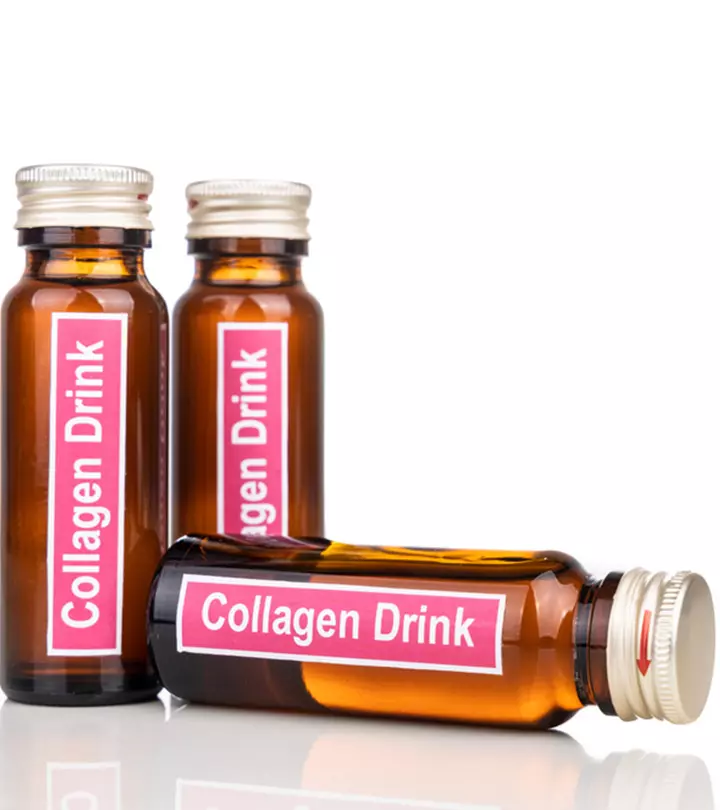











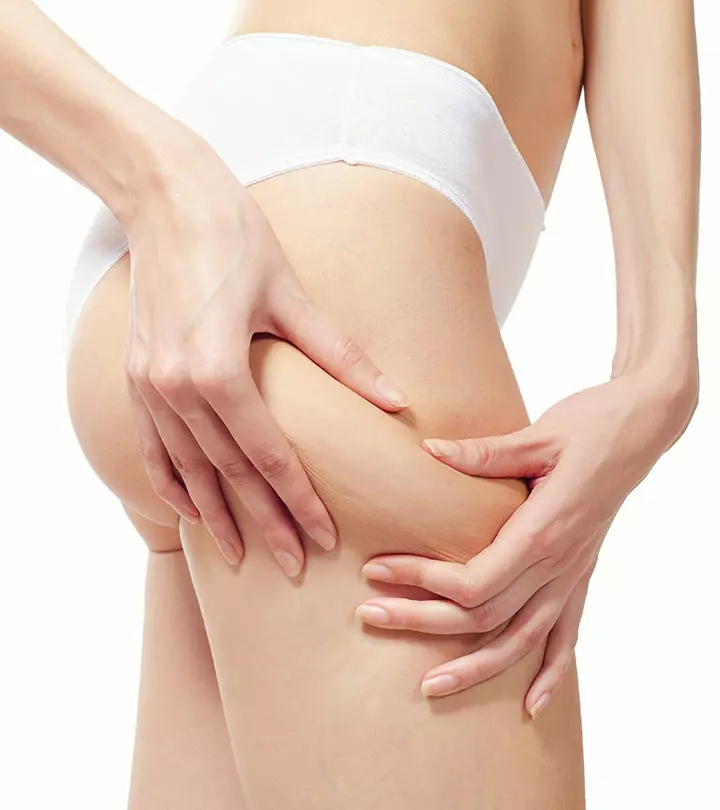




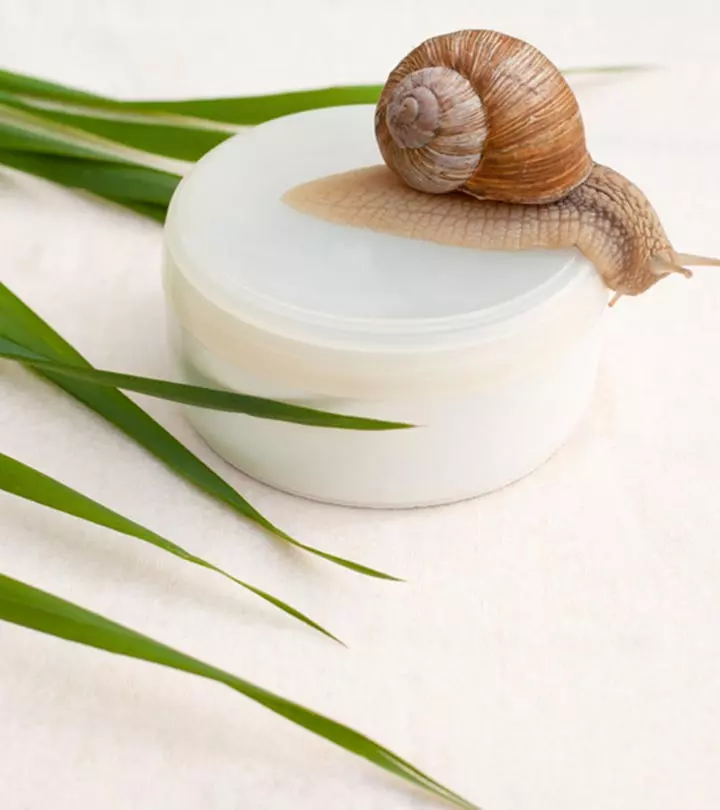
Community Experiences
Join the conversation and become a part of our empowering community! Share your stories, experiences, and insights to connect with other beauty, lifestyle, and health enthusiasts.